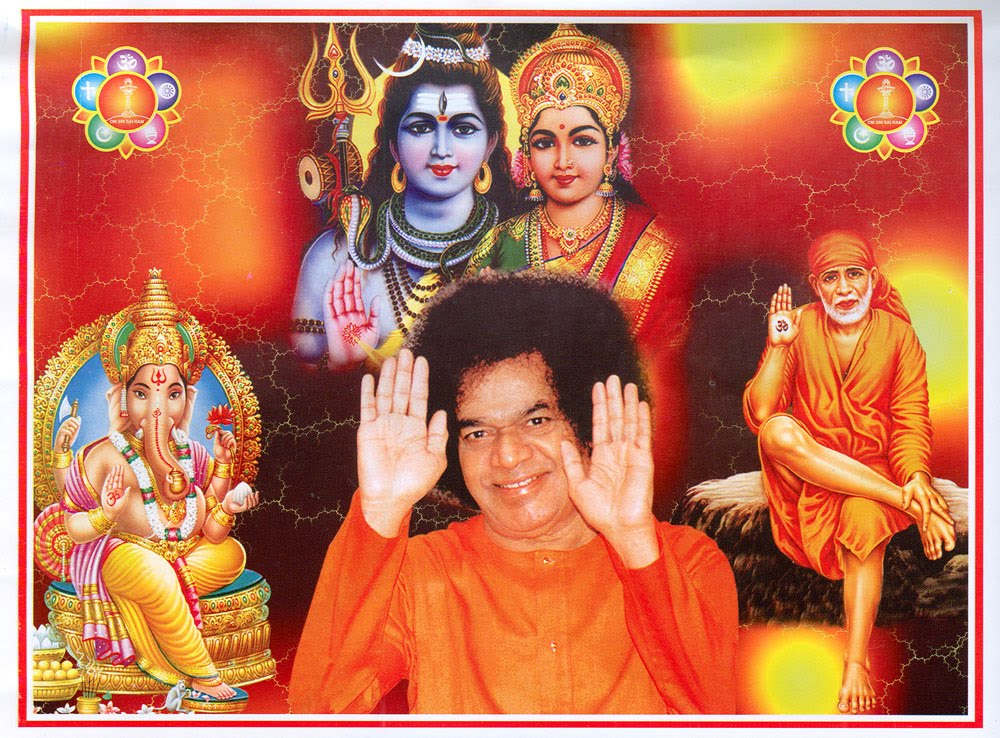Sairam,
en un satsang celebrado en la divina presencia en Singapur , el 8 de agosto de 2017 ; un devoto busca orientación para hablar solo lo que se requiere y cuándo se requiere.
Y esto es lo que dijo Swami:
Pregunta: Swami, siempre has dicho: "Cuida tus pensamientos, acciones y palabras", con pensamientos positivos y acciones como servicio a los demás. Mi pregunta es, ¿cómo hablamos menos y solo hablamos sobre lo que se requiere por completo? A veces, tendemos a hablar demasiado, especialmente en el trabajo. Pensamos en lo que es correcto, pero eso no siempre es bien recibido por los demás, lo que se convierte en conversaciones innecesarias. ¿Cómo evitamos eso y hablamos menos sobre lo que realmente se requiere?
Swami: Dios te ha dado dos oídos, pero solo una lengua, con el único propósito de hablar menos. La pregunta es cómo hablas cada vez que abras la boca.
En las escrituras, dice, " Sathyam vada priyam vada " - habla la verdad pero háblala de una manera dulce. " Na bruyat sathyam apriyam " - no hables de una manera que no sea dulce. Eso significa que debes decir la verdad de una manera dulce, sin hablar desagradablemente. No hablar de una manera desagradable es muy importante. Todo esto requiere práctica y contemplación.
Comprenda que hay dos formas de decir lo mismo. Una forma es decirlo de una manera desagradable; la otra forma es decirlo de una manera agradable. Incluso si la verdad es amarga, pero la dices de una manera agradable, será aceptada por las personas que te rodean. Discriminar entre los dos.
Hay una vieja historia sobre un rey que tuvo un bebé y pidió a los astrólogos que predigan el futuro de su hijo. El primer astrólogo entró y dijo: "Tu hijo tendrá una vida muy corta".
El rey se enojó mucho y dijo: "¡En este día auspicioso, me estás diciendo cosas terribles!". Tenía a sus guardias encarcelados.
Luego llamó al siguiente astrólogo, quien dijo: "Su hijo no va a vivir mucho". Una vez más, el Rey se enojó mucho y les dijo a los guardias que decapitaran al segundo astrólogo.
El tercer astrólogo vio lo que le sucedió a los dos anteriores, pero sintió que debía decir la verdad. Pensó para sí mismo: "No puedo decir una mentira ya que esta es mi profesión, pero debo decirlo de una manera que no moleste al Rey".
Entonces el tercer astrólogo dijo: "¡Tu hijo te traerá una gran fortuna! Él te ha traído largos años de vida. Vivirás incluso más tiempo que él. "El rey estaba muy feliz y lo recompensó. Era la misma verdad, pero se dijo de una manera que era agradable para el rey.
No estoy diciendo que debas hablar falsedad por el bien de agradar a los demás, eso es un pecado. Debe decir la verdad, pero hable de una manera agradable para los demás. Ahí es donde la discriminación entra en escena. Discrimina y piensa antes de decir algo.
TRADUCCION NO OFICIAL
In a satsang held in the divine presence in Singapore, on 8 August 2017; a devotee seeks guidance on speaking only what is required and when it is required.
And here is what Swami said:
Question: Swami, You have always said, "Watch your thoughts, actions and words," with thoughts being positive, and actions as service to others. My question is, how do we speak less and speak only what is absolutely required? Sometimes, we tend to over-speak, especially at work. We think about what is right, but that is not always received well by others, which turns into unnecessary conversations. How do we avoid that and speak less about what is really required?
Swami: God has given you two ears, but only one tongue, for the very purpose of speaking less. The question is how you speak whenever you open your mouth.
In the scriptures, it says, "Sathyam vada priyam vada" - speak the truth but speak it in a sweet way. "Na bruyat sathyam apriyam" – do not speak in a way that is not sweet. That means you must speak the truth in a sweet way, not speaking unpleasantly. Not speaking in an unpleasant way is very important. All this requires practice and contemplation.
Understand that there are two ways of saying the same thing. One way is to say it in an unpleasant way; the other way is to say it in a pleasant way. Even if the truth is bitter, but you say it in a pleasant way, it will be accepted by the people around you. Discriminate between the two.
There's an old story about a king who had a baby and called for astrologers to predict his son's future. The first astrologer walked in and said, "Your son will have a very short life."
The king got very angry and said, "On this auspicious day, you are telling me terrible things!" He had his guards put him in jail.
He then called the next astrologer, who said, "Your son is not going to live very long." Again, the King got very upset and told the guards to behead the second astrologer.
The third astrologer saw what happened to the previous two, but felt he must tell the truth. He thought to himself, 'I can't tell a lie as this is my profession, but I must tell it in a way that does not upset the King.'
So the third astrologer said, "Your son will bring great fortune to you! He has brought you long years of life. You will live even longer than him." The king was very happy and rewarded him. It was the same truth, but it was said in a way that was pleasant to the king.
I am not saying you should speak untruth for the sake of pleasing others – that is a sin. You must speak the truth, but speak it in a way that is pleasant to others. That is where discrimination comes into the picture. Discriminate and think before you say anything.
https://goo.gl/6N7nFA
| goo.gl Sairam, If you would be interested to receive emails about Swami in the subtle form, please see below. There are 4 different mailing lists (google groups). The description for each of these groups is given below. You can sign up for one or more of these mailing lists. Sairam, MDH Satsang | ||





















No hay comentarios :
Publicar un comentario